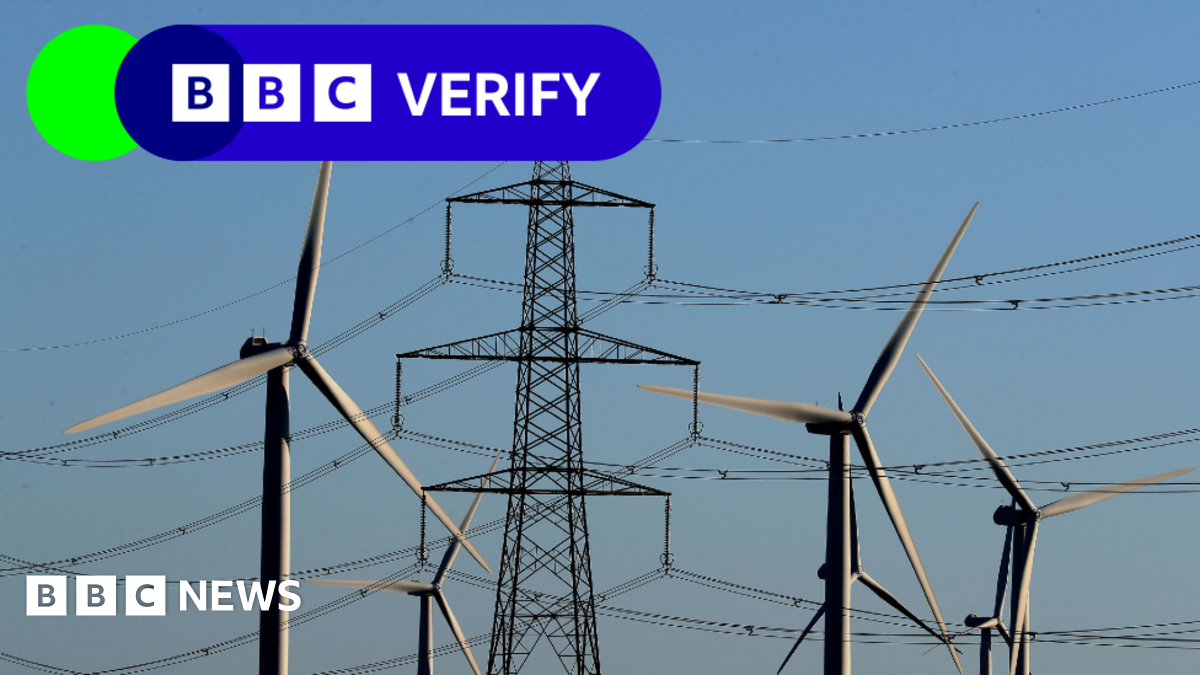Because it’s all owned by private companies, who will charge the going rate to fulfil power needs.
And since power requirements can’t be met without gas, that’s the price they’ll charge. They know you’ll pay it rather than go without power.
Because of the price of gas and coal
Capitalism. If the market is able to pay more then the company will demand more
Yeah. Someone will always be able to pay more than the common man. And companies using it to produce something will always afford to pay more than someone just consuming electricity.
That’s no how capitalism works. If there is money to be made there will be more competition.
Not if the biggest players buy all their competition and use their multi-state revenue to lobby municipalities to make it illegal to compete with them.
It’s important to recognize that this is how capitalism works if you try to apply it to natural monopolies such as physical infrastructure, along with anything else subject to inelastic demand, such as healthcare. It’s exactly why it makes no sense to have entities that provide such infrastructure operate according to free markets, because either (1) there will be no competition and the “market” with one seller will abuse their position to maximize profit, or (2) you have competing systems side by side, using double the resources and space (or more) for half the efficiency (or less).
Too often people think of Capitalism as an efficiency maximizer, when in reality it is a capital concentrator. Infrastructure needs to be efficient in order to best serve the people that use it. We see time and again that energy corporations in the “free market” use their revenue to buy their competitors and lobby for looser restrictions that let them hike rates faster and higher until they’ve completely escaped any semblance of regulation.
Lemmy has such a bad understanding of capitalism.
-
that’s the united states of america. Not the UK.
-
Lobbying isn’t capitalism. The government needs to be involved in capitalism.
But finally, finally after all that. The core is energy production is not a monopoly it is a largely free market where many businesses and even many countries can create energy production in the UK. Home owners, co-ops, France nuclear, Norwegian hydro, gas, wind.
What you are talking about is electrical distribution being a natural monopoly. The National Grid (Great Britain) is largely a single monopoly but that’s not where the price comes from. The UK has a lot of oversight of that and inter connectors and offshore wind leases and even maximum pricing. How are companies going to shaft consumers when the UK government limits the amount they can sell for.
-
deleted by creator
Well then you need government regulation.
But that’s not the bread and butter of capitalism markets. It’s the edge cases
I like to think of water utilities as a simpler example.
So you’ve got a water company, it provides everyone in the country all of their water, congrats, 100% market penetration. Production is mostly recycling, with the remainder falling from the sky.
So what now? Consistently make the same earnings every year, weighted for population changes?
Nope, graphs gotta go up, prices have to go up.
I would imagine it’s something like this:
Say your electric company has a fixed budget of $1,000,000,000 and they have 500,000 customers.
Comes out to about $2,000 a year or $166 a month.
If 10% of their customer base goes solar, the companies fixed costs don’t change, so $1B/450K is now $2,222 per year or $185 a month, an increase of $19/mo.
Budget goes up? They need to increase subscribers or increase rates.
Subscribers go down? They need to cut their budget or increase rates.
They’d better figure out a new business model. Solar and back up batteries aren’t going anywhere.
Definitely, they’re currently at the start of a death spiral… People move to renewable energy, so they raise rates, causing more people to move to renewable energy.
It’s not a tenable plan for much longer. Same plan as for cable television.
People cut the cord, which causes rates to go up for existing customers, which causes more people to cut the cord.

There’s incentive to move to solar and batteries to avoid the rate increases due to solar installations reducing billable power delivery.
Is that supposed to be a parody on “ceteris paribus” economic thinking?
Unreliable power generation needs on-demand backup generation, typically natural gas based. That’s the perverse effect of renewables: as grid scale seasonal storage is impossible, it increases dependence on gas. In Belgium we’ve even retrofitted jet engines to turbines as kerosine based emergency generation.
Now we’re paying for both the renewables and fossil infrastructure, both scaled to peak power usage. During dunkleflaute, you pay an arm and a leg. When unpredicted clouds or fog appear, you pay emergency balancing prices.
End result: Annualized price is high.
That is a naive way of looking at how the electricity market currently functions and is regulated.
Due to how the pricing is regulated in the market there is a perverse incentive for electricity producers to keep expensive gas plants running to increase profits from their renewable sources, as they can ask the highest production price for all the electricity produced regardless of the actual source.
This regulation was originally intended to increase profits of producers with a small base of renewables and incentivize them into investing in more renewables and I guess you can say that worked in the early 2000. But now that we have a substantial install base of renewables, it highly disincentivizes producers to retire their remaining expensive gas plants and invest in better transmission and energy storage.
Due to how the pricing is regulated in the market there is a perverse incentive for electricity producers to keep expensive gas plants running
You’re probably talking about the day-ahead market (1). The price per kWh is indeed where bids and asks meet.
Only a small portion of electricity is traded on that market. It’s a marginal factor.
Most is traded OTC, longer term. There’s also the intraday-market. Finally, there’s the balancing price.
That is a naive way of looking at how the electricity market currently functions and is regulated.
I’ve worked as energy trader.
it highly disincentivizes producers to retire their remaining expensive gas plants and invest in better transmission and energy storage.
It is a fundamental problem of technology. Here in Belgium the government started subsidising gas plants, passing the costs on to end-consumers, as they’re necessary for balancing the grid, but unprofitable to run. (1)
As an analogy: it’s like buying a fleet of sailboats. As long as there’s a need for cargo to travel regardless of weather, you’ll still also be maintaining a fleet of motorized boats.
I’ve worked as energy trader.
“It is difficult to get a man to understand something, when his salary depends on his not understanding it.”
And yes, looking at the gas plants alone they are unprofitable to run, but they allow windfall profits from renewables if they run.
You’re incorrect in both your understanding of energy markets, and my paychecks.
but they allow windfall profits from renewables if they run
Again, you’re basing this on the day-ahead market. A marginal market in terms of traded power volume.
Cost for wind and battery back up is cheaper than nuclear Similar for solar. So when people talk about the need for back up they don’t mention that the cost including back up is still cheaper than nuclear, which is cheaper than fossil fuels.
Cost for wind and battery back up
To supply germany for one week you need more than the world’s supply of batteries. It’s hard to speculate on the price of something that doesn’t exist.
Pumped storage is currently the only technology that could make grid-scale power storage work.
Is this in an imaginary world with no power from anywhere else, including international interchange? Total battery power is a society ending event. It’s hard to speculate on a power situation that doesn’t exist.
Costs are based on supply and demand. At current demand battery power back up is cheaper than non environmentally friendly forms of energy. Should that change due to supply issues, we can recalibrate.
Howevwrx the smart money, which happens to also benefit the environment, is on green energy.
Pumped storage is still great and has a plate but we need to consider the environmental effect of the dams and reservoirs too. Experimental usage of electric vehicles as a battery supply has also been positive.
You are so right. Thank you! In a situation where it is impossible to generate or import any electricity at all, a nuclear reactor would not be able to produce any electricity either, because the grid is non-operational.








